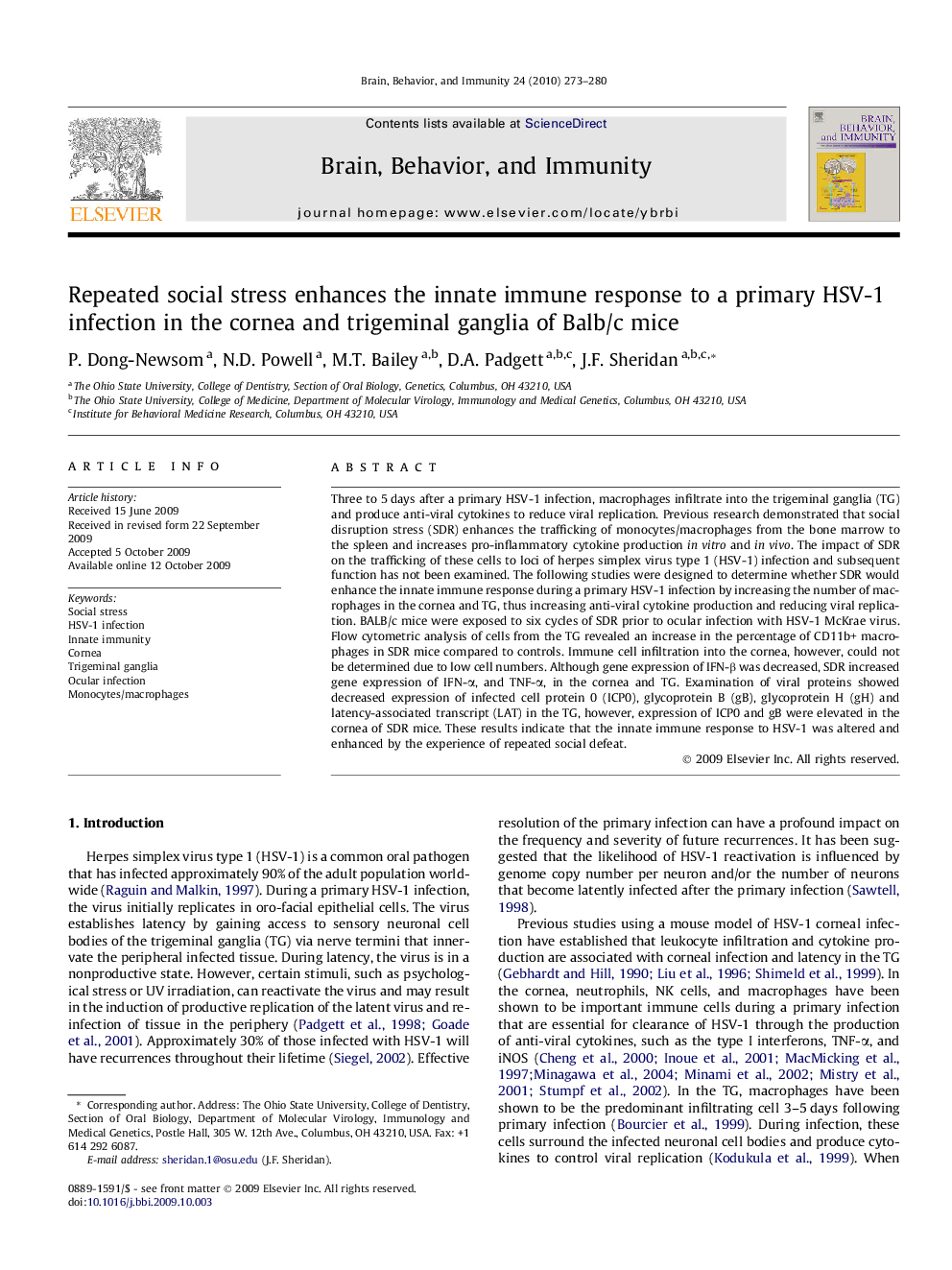| کد مقاله | کد نشریه | سال انتشار | مقاله انگلیسی | نسخه تمام متن |
|---|---|---|---|---|
| 922713 | 921058 | 2010 | 8 صفحه PDF | دانلود رایگان |

Three to 5 days after a primary HSV-1 infection, macrophages infiltrate into the trigeminal ganglia (TG) and produce anti-viral cytokines to reduce viral replication. Previous research demonstrated that social disruption stress (SDR) enhances the trafficking of monocytes/macrophages from the bone marrow to the spleen and increases pro-inflammatory cytokine production in vitro and in vivo. The impact of SDR on the trafficking of these cells to loci of herpes simplex virus type 1 (HSV-1) infection and subsequent function has not been examined. The following studies were designed to determine whether SDR would enhance the innate immune response during a primary HSV-1 infection by increasing the number of macrophages in the cornea and TG, thus increasing anti-viral cytokine production and reducing viral replication. BALB/c mice were exposed to six cycles of SDR prior to ocular infection with HSV-1 McKrae virus. Flow cytometric analysis of cells from the TG revealed an increase in the percentage of CD11b+ macrophages in SDR mice compared to controls. Immune cell infiltration into the cornea, however, could not be determined due to low cell numbers. Although gene expression of IFN-β was decreased, SDR increased gene expression of IFN-α, and TNF-α, in the cornea and TG. Examination of viral proteins showed decreased expression of infected cell protein 0 (ICP0), glycoprotein B (gB), glycoprotein H (gH) and latency-associated transcript (LAT) in the TG, however, expression of ICP0 and gB were elevated in the cornea of SDR mice. These results indicate that the innate immune response to HSV-1 was altered and enhanced by the experience of repeated social defeat.
Journal: Brain, Behavior, and Immunity - Volume 24, Issue 2, February 2010, Pages 273–280